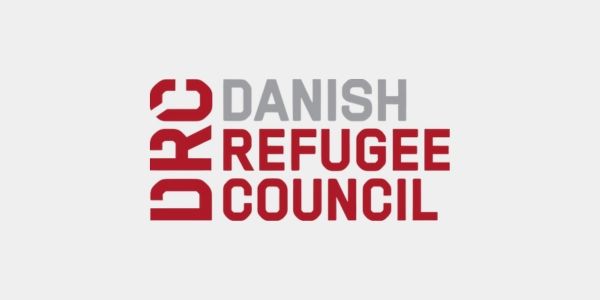The Issue
Kakuma and Kalobeyei refugee camps in Turkana County, northern Kenya, host over 254,000 people in a protracted displacement situation that has persisted for more than 30 years. Despite efforts to promote self-reliance, including the Kalobeyei settlement initiative, progress has been slow due to restrictive legal and policy environments, weak market systems, and limited private sector engagement.
Refugees and host communities alike face high unemployment, widespread poverty, and constrained access to resources and finance. Refugees, in particular, remain heavily reliant on humanitarian aid, including food distributions by the organisation World Food Programme.
However, the 2022 Refugee Act marks a critical policy shift by the Government of Kenya, presenting a significant opportunity to reimagine refugee responses. The Inclusive Refugee Response Programme (IRRP) capitalizes on this momentum to support socio-economic integration and self-reliance through a comprehensive, inclusive, and evidence-driven approach. It builds on years of collaborative planning, including the Solutions Alliance, Kalobeyei Integrated Social and Economic Development Plan, the Global Compact on Refugees (GCR), and the Comprehensive Refugee Response Framework (CRRF).
The Project
The Pathways to Prosperity Project (P2P), has been developed under the IRRP framework and seeks to tackle the underlying barriers to self-reliance and resilience for both refugees and host communities.
By addressing remoteness, marginalization, and systemic exclusion, the project introduces a phased, scalable model that promotes sustainable livelihoods through market-based solutions, green value chains, and inclusive policy advocacy. This is done by drawing from local knowledge and resilience.
The project aims not only to transform the Turkana context but also to pilot a replicable model for integrated refugee-host community development in similar contexts.
In a context marked by rising conflict and climate-related displacement, and dwindling solutions for protracted refugee situations, Kenya’s Refugee Act of 2022 – and the regional commitment by the County Government of Turkana – offers renewed hope. The Inclusive Refugee Response Programme (IRRP), backed by the Danish Embassy, provides a critical opportunity to improve the self-reliance, resilience, and climate adaptation capacity of both refugees and host communities in Turkana County.
The Change
P2P Project supports this vision by promoting inclusive access to economic opportunities, financial inclusion, and sustainable livelihoods. It addresses challenges stemming from remoteness, natural resource depletion, exclusion, and weak market systems – particularly in pastoralist areas.
Through a strong Theory of Change, the project proposes that if vulnerable households access climate-smart, market-driven skills and resources, and systemic barriers to productivity and business growth are removed, then both refugee and host communities can achieve greater resilience and self-reliance.
Aligned with Turkana’s County Integrated Development Plan and Kalobeyei Integrated Social and Economic Development Plan, the project integrates local priorities, builds on strong partnerships with local institutions, and strengthens civic participation. It also embeds policy and learning components to ensure that national and county-level refugee policies are evidence-based and inclusive.
The projects three key outcomes are:
- Strengthened economic recovery and sustainable access to markets and finance
- Improved enabling environment by addressing systemic barriers
- Enhanced access to sustainable water and sanitation services through a comprehensive Water, Sanitation and Hygiene approach
These outcomes support economic growth and social cohesion while addressing climate vulnerability. Coordination with civil society and private sector actors will ensure risk-sharing, best practice sharing, and long-term viability. By anchoring interventions locally and fostering inclusive development, the P2P project aims to deliver a replicable model for integrated, durable solutions in Turkana and beyond.
The Results
Achievements so far..
As of February 2025, 200 vulnerable households in Kalobeyei have been engaged in climate-smart agriculture, focusing on drought-tolerant sorghum and vegetable production.
At Ejim Farm, 70 acres have been ploughed and planted with sorghum. Plans are underway for early land preparation and the installation of drip-irrigated net houses to enable year-round crop production.
Ten participants are currently undergoing a five-month apprenticeship (January to June 2025) to build local capacity.
An additional 500 participants, including 297 refugees, were selected for vegetable farming under shade nets, with construction completed in March 2025. Inputs and modular training are being provided.
Poultry production targeted 300 households (136 refugees). Construction of poultry houses is 70% complete.
Mushroom farming was introduced to 30 participants in Kakuma, with production expected to begin in March.
Clean energy promotion has reached 300 people directly and 9,197 via social media (LinkedIn: 7,710; Facebook: 1,368; Instagram: 119).
A baseline survey (204 respondents) revealed that 51.2% were unaware of clean energy solutions, and only 2.3% had adopted clean cookstoves.
Solar adoption was higher among host communities (52.3%) than refugees (4.5%).
The Partners

The Danish Refugee Council (DRC), established in 1956, is an international humanitarian organization dedicated to promoting durable solutions for refugees, internally displaced persons, and communities affected by displacement. With a strong focus on development and peacebuilding, DRC strives to uphold the dignity and rights of displaced populations across the world.
As a key partner in the Pathways to Prosperity (P2P) project, DRC leads efforts around Financial Inclusion and Food Security, empowering communities to access economic opportunities and build sustainable livelihoods.

Turkana Pastoralists Developement Orginazation (TUPADO) is a national non-governmental organization founded in 2000 and officially registered in 2002. TUPADO works at the grassroots level to support pastoralist and agro-pastoralist communities in Turkana County and beyond.
The organization delivers a wide range of humanitarian and development interventions, including livestock production, peacebuilding and security, livelihoods, water, sanitation and hygiene (WASH), human health services, climate change adaptation, governance, and human rights advocacy.
Within the P2P project, TUPADO plays a crucial role in supporting host communities, particularly in the area of livestock health and resilience. Their contributions include livestock vaccination campaigns and the formulation of nutritious animal feeds, aimed at improving livestock productivity and enhancing community resilience in the face of climate shocks and economic hardship.
About the Project
Full title: Pathways to Prosperity
Period: January 2024 – June 2026
DCA Theme: Building Resilient Communities
Funding: 14,500,000 DKK
Main Donor: Danida


